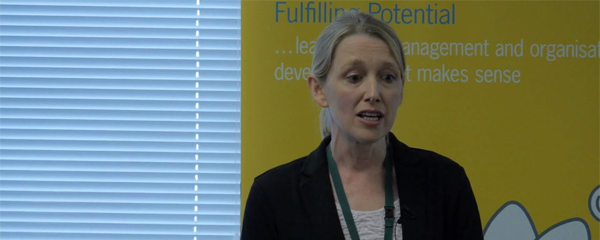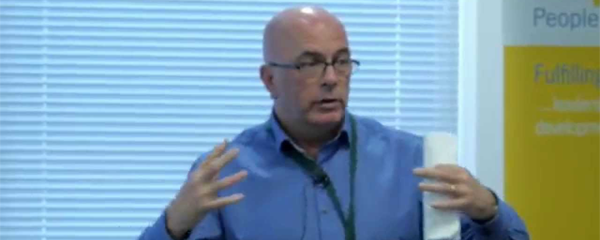At Buurtzorg, without those layers of management it is uniquely focused on the front-line staff, the nurses, and on the needs of the patients. In this revealing video founder Jos de Blok lays out an approach that could be a new model for how organisations can work.
“We have not had one management meeting since we started,” explains Jos. “In my former job we had a lot of meetings that were only about meetings. Now we just have time to solve the problems.”
The Buurtzorg model is based on traditional Dutch care, with nurses based in local communities. In the 80s and 90s this approach was changed to introduce the ‘efficiency’ of modern management methods. Centralised call centres took the calls from patients and central planners would be allocated the jobs to nurses, and the time to spend with each person. A patient might see dozens of different nurses over a year, and have to explain their problems anew to each one.
Buurtzorg has returned to a nurse-led approach. There are no call centres. Nurses take the calls. Where elsewhere head-office planners decide who visits who, nurses, in self-managing teams of ten to twelve nurses, plan patient visits and decide how long they spend there, depending on their judgement of the need.
With only 45 people in the head office, overhead costs are 8% instead of the 25% that is standard in the industry. A report by Ernst and Young estimated that, if this model were adopted across the Netherlands, it would save over 2 billion euros.
“When nurses feel happy… they will do good things”
With nurses able to fulfil their vocation and respond according to their judgement, staff satisfaction is high and sickness among staff is a little over half that of other care companies. And Buurtzorg is consistently top for patient satisfaction, out of over 300 Dutch nursing providers.
For Jos de Blok, there are three simple principles behind the success:
- Do what’s needed
- Reflect on what you are doing, and try to do it better
- Use your common sense (or ‘common sensing’ as Jos puts it in the video)
“Let’s avoid complexity. Even with 9,000 people, it can be a very simple organisation. We must build organisations based on meaningful relationships. When nurses feel happy they will stay healthy and they will do good things.”























